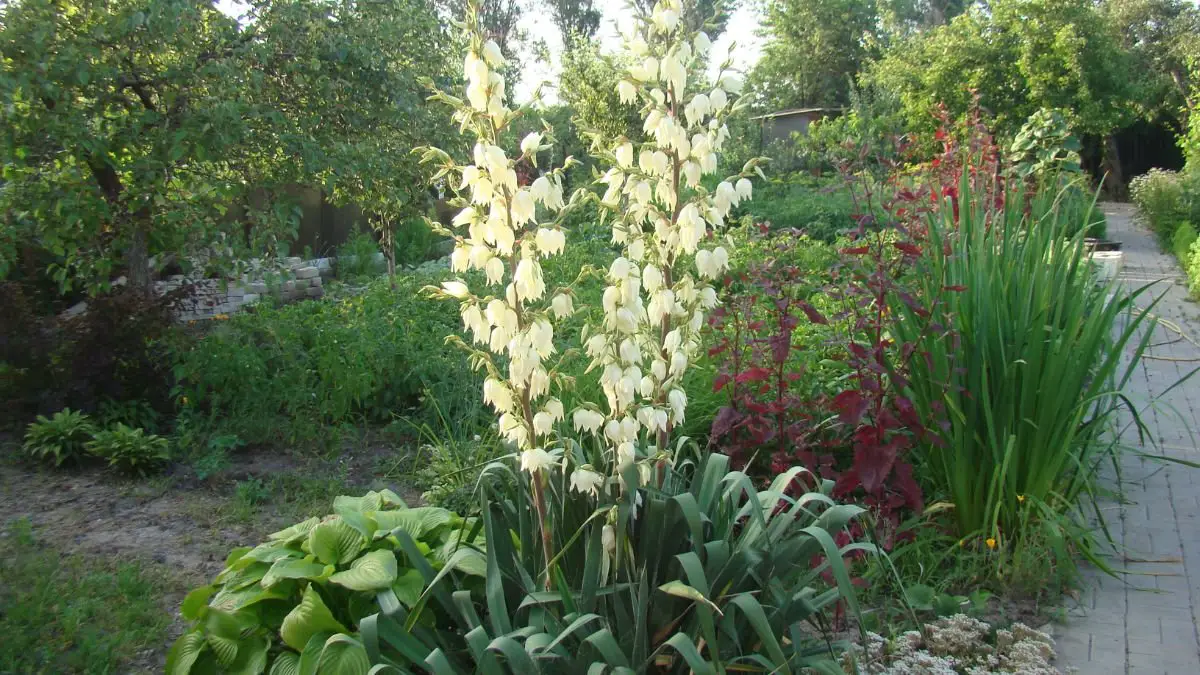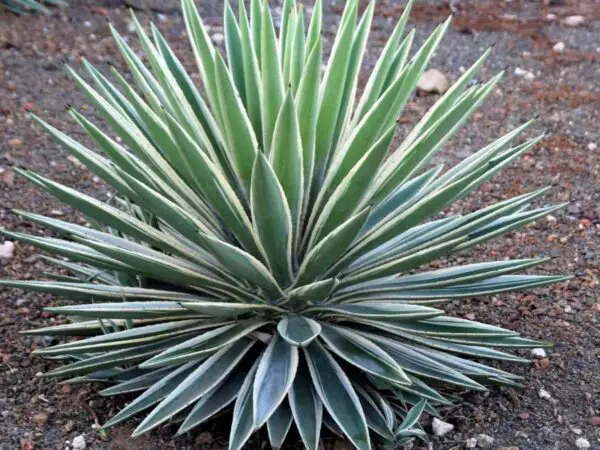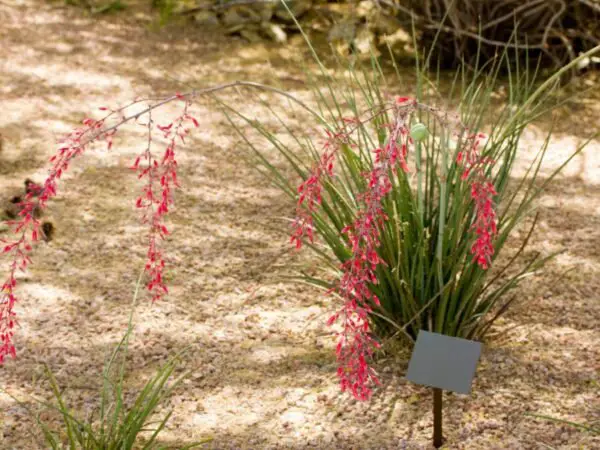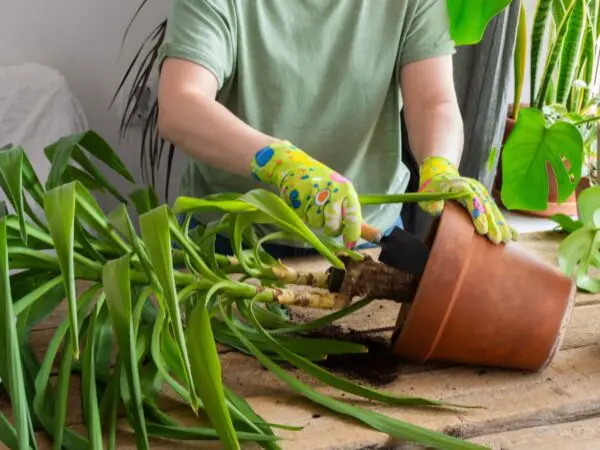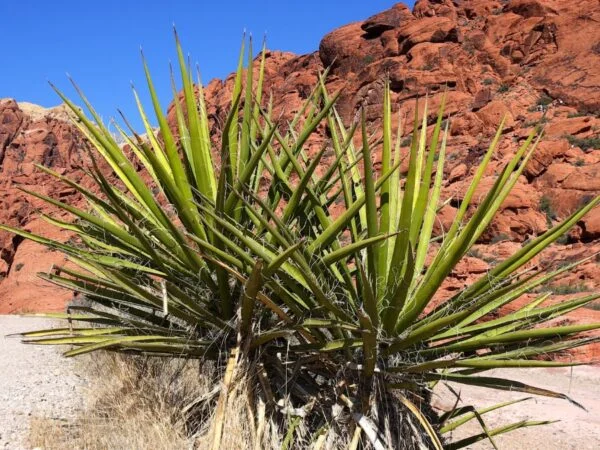Looking to expand your indoor garden? Propagating a yucca plant is a simple and rewarding way to grow your green space. Unlike other houseplants, yuccas with easy leaves require minimal effort and attention, making them ideal for beginners. By following these easy steps, you can create new yucca plants from cuttings or offsets, adding lushness to your home decor effortlessly.
Whether you're a seasoned gardener or just starting out, propagating a yucca plant can be a fun and fulfilling experience. With the right guidance, you can watch your plant collection flourish and thrive. Stay tuned as we delve into the step-by-step process of propagating yucca plants indoors.
Understanding Yucca Plants
Yucca plants, commonly known as yuccas, are versatile and low-maintenance plants that can thrive in various environments. These plants, also known by the name yuccas, belong to the Asparagaceae family and are characterized by their sword-shaped leaves and unique flower spikes.
Ideal Growing Conditions
- Provide well-draining soil at the base to prevent waterlogging, which can lead to root rot.
- Ensure ample sunlight exposure for at least 6 hours a day to encourage robust growth.
- Maintain a warm environment with temperatures above 60°F (15°C) for optimal yucca plant development.
Varieties to Consider
- Explore different yucca plant varieties such as Yucca filamentosa, also known as Adam's needle, for its striking foliage.
- Consider Yucca gloriosa, commonly referred to as Spanish dagger, for its architectural appeal in landscapes and garden.
- Look into Yucca elephantipes, or spineless yucca, as an excellent choice for indoor settings due to its adaptability.
Essential Care Tips
- Regularly check for signs of overwatering such as yellowing leaves and adjust watering frequency accordingly.
- Prune dead leaves using sharp shears to promote new growth and maintain the plant's appearance.
- Fertilize yucca plants sparingly with a balanced fertilizer during the growing season to avoid nutrient imbalances.
Propagation Basics
Choosing the Right Method
Decide if propagating from offsets or stem cuttings is best for you. Assess the time and effort needed for each method. Select based on your gardening experience.
Tools and Materials Needed
- Use a sharp knife to cut offsets or stem cuttings.
- Prepare pots with well-draining soil for planting yuccas.
- Keep a watering can handy for ensuring proper hydration of new plants.
Cutting Propagation Guide
Selecting Cuttings
When propagating a yucca plant through cutting propagation, it's crucial to choose healthy offsets or stem cuttings. Opt for those with well-developed roots as they indicate better growth potential. Avoid any cuttings showing signs of disease or damage.
Preparing Cuttings
To prepare the cuttings, ensure a clean trim to prevent unnecessary damage. Let the cuttings callus over before planting to reduce the risk of infections. Remove excess leaves from the cutting to direct energy towards root development.
Rooting Process
During the rooting process, regularly check progress by gently tugging on the cutting after a few weeks. Keep the soil consistently moist but not waterlogged to support root growth. Provide indirect sunlight to stimulate root development in propagated yuccas.
Seed Propagation Guide
Collecting Seeds
Harvest yucca seeds from mature plants for propagation. Wait for seed pods to dry out before collecting them. Store the seeds in a cool, dry place.
Preparing Seeds
k yucca seeds in warm water overnight to enhance germination. Scarify the seed coat slightly for better seedling emergence. Use well-draining seed-starting mix for planting.
Germination Techniques
Maintain consistent moisture levels during germination. Provide bottom heat to accelerate seed germination process. Cover seed trays with plastic for optimal germination conditions.
Tips for Successful Propagation
Timing and Season
Spring is the best time to propagate yucca plants, aligning with their active growth period. Consider the plant's natural cycle to ensure successful propagation. Avoid propagating during dormancy to maximize results.
Soil and Watering
Utilize a well-draining cactus mix when planting propagated yuccas to prevent root rot. Water yucca plants sparingly to avoid waterlogging issues. Let the soil dry out between watering sessions to replicate their natural environment accurately.
Light and Temperature
Position propagated yuccas in a spot with bright, indirect sunlight for optimal growth. Maintain temperatures above 60°F (15°C) to support healthy yucca development. Shield the plants from drafts or sudden temperature fluctuations to prevent stress.
Troubleshooting Common Issues
Root Rot and Pests
Yucca plant propagation can face challenges like root rot, which is preventable with proper soil drainage. Keep an eye out for spider mites or mealybugs, common pests that harm yucca plants. Swiftly address any pest issues to safeguard your propagated yuccas.
Slow Growth Problems
To tackle slow growth in yucca plants, adjust their light exposure as needed. Check for nutrient deficiencies that might be stunting growth. Be vigilant about the environmental conditions affecting your yucca plant's development in the garden.
Aftercare and Maintenance
Post-Propagation Care
After propagating a yucca plant, it is essential to monitor its watering needs diligently. This attention ensures the newly propagated plant establishes itself successfully. Gradually expose indoor-grown propagated yuccas to outdoor conditions for optimal growth.
To support the healthy growth of propagated yucca plants, consider providing occasional fertilization. This practice aids in promoting robust development and overall plant health.
Long-Term Maintenance
Regularly pruning dead or damaged leaves is crucial for maintaining the overall health and aesthetics of yucca plants. By removing these leaves, you prevent potential issues and encourage new growth.
For long-term vitality, it is advisable to repot yucca plants every few years. This process refreshes the soil, provides more space for root expansion, and promotes continued healthy growth.
Keep a close eye on your yucca plant clusters to monitor signs of overcrowding. Overcrowding can lead to competition for resources and hinder the long-term health and vigor of your plants.
FAQ on Yucca Propagation
When to Repot
Repot yucca plants as roots outgrow their container. Choose larger pots for growth. Refresh soil during repotting.
Propagating Different Varieties
Research propagation methods for each yucca variety. Experiment with techniques for successful growth. Consider unique characteristics when propagating.
Final Remarks
After mastering the art of propagating yucca plants through various methods and troubleshooting common issues, you are now equipped with the knowledge and skills to successfully expand your yucca family. Remember to provide proper aftercare and maintenance to ensure the health and growth of your propagated yucca plants. By following the tips provided in this guide, you can enjoy watching your yucca plants thrive and flourish in your indoor or outdoor space.
Take action now by applying what you've learned and start propagating your yucca plants with confidence. Share your newfound expertise with fellow plant enthusiasts and continue to nurture your green thumb. With dedication and care, you can plant a beautiful yucca garden that brings joy and tranquility to your surroundings.
Frequently Asked Questions
How can I propagate a yucca plant through cutting?
To propagate a yucca plant through cutting:
- Use a sharp, sterilized knife.
- Cut a healthy stem section.
- Let the cutting dry for a few days.
- Plant the cutting in well-draining soil.
- Keep the soil moist but not waterlogged.
Can I propagate a yucca plant from seeds?
Yes, you can propagate a yucca plant from seeds by following these steps:
- Collect mature seeds from the yucca plant.
- Plant the seeds in a well-draining potting mix.
- Keep the soil consistently moist but not soggy.
- Provide warmth and bright, indirect light for germination.
When is the best time to propagate a yucca plant?
The best time to propagate a yucca plant is in the spring or early summer when the plant is actively growing. This period provides optimal conditions for successful root development and growth of new plants.
How long does it take for a propagated yucca plant to root?
It typically takes 4 to 6 weeks for a propagated yucca plant to develop roots. During this period, ensure that the cutting or seedling receives adequate sunlight, moisture, and warmth to support healthy root formation and growth.
What are common issues encountered during yucca propagation?
Common issues during yucca propagation include:
- Root rot due to overwatering.
- Fungal diseases from excessive moisture.
- Failure of cuttings to root.
- Lack of humidity affecting seed germination. To prevent these issues, maintain proper watering practices and provide suitable growing conditions for successful propagation.
Image Source: Paid image from CANVA

